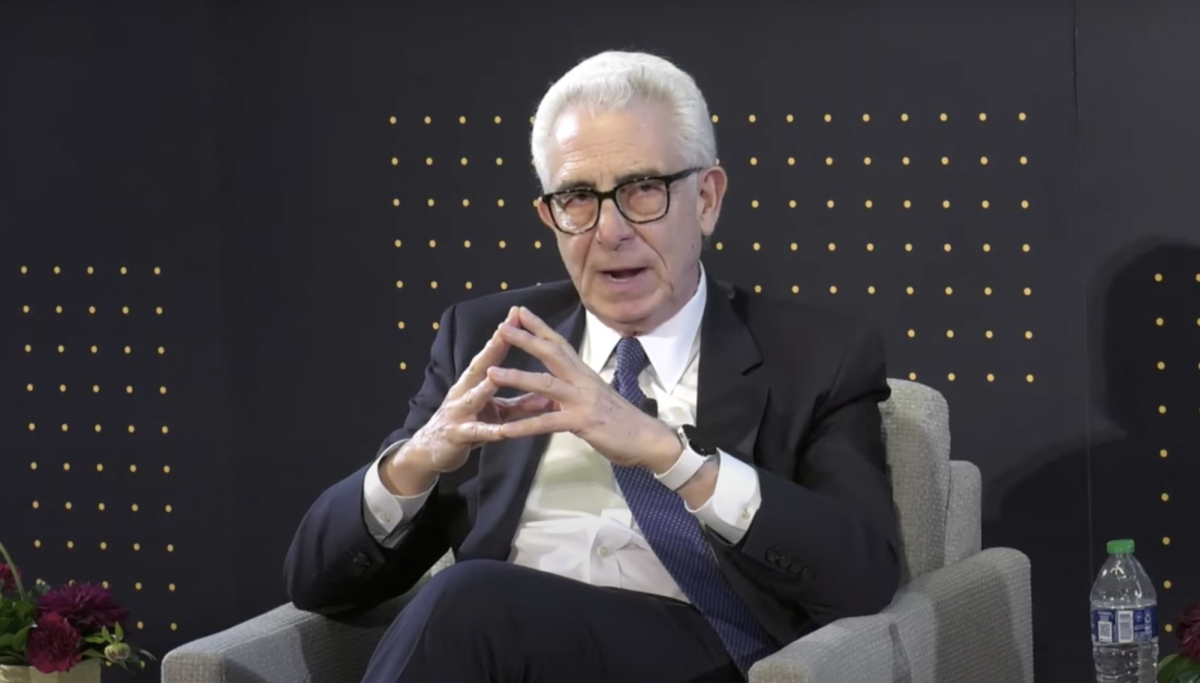On October 20, the sixth-annual Pearson Global Forum was held at the David Rubenstein Forum. Hosted by the Pearson Institute for the Study and Resolution of Global Conflict, speakers at the event discussed economic disparity in various countries, focusing on Mexico, Iran, Palestine, and Afghanistan.
The event featured a wide range of speakers from the public and private sectors, including scholars, journalists, foreign policy experts, and government officials. Notable speakers included former Mexican President Ernesto Zedillo and Iran’s first female judge and 2003 Nobel Laureate Shirin Ebadi.
Zedillo, who is currently an adjunct professor in environmental studies at Yale, discussed economic development in Mexico and wider Latin America. At the forum’s first event, Zedillo focused on the so-called “pre-development trap,” or the difficulties that Latin American countries have faced when attempting to become fully developed nations.
Zedillo argued that Latin America is afflicted with three “diseases” which impede economic development.
“[Latin America] suffers fundamentally from three diseases. One is the weak rule of law. [The second is] acute inequality. The third disease is that of very low GDP and productivity growth.”
Zedillo elaborated on the importance of social inequality in easing the pre-development trap.
“I always try to think of an essential principle of rule of law. And that essential principle is equality before the law. When you don’t have equality before the law, you have a privileged group that has access to good or so-so education, and good or so-so health services, and then you have the rest of the population marginalized from those opportunities.”
While a social safety net is essential to easing social inequality, Zedillo also warned against the possibility of failed democracies.
“Democracy used to be the exception, not the rule, in Latin America. We work hard to build democracy in most of our countries. And unfortunately, what we have seen repeatedly, and every time more aggressively, is the attempt to erode that democracy and move us to autocracy, to authoritarianism, using the old ways of the abuse of power. If that happens, then Latin America will not be able to escape the pre-development trap, and we will fall into a much worse trap.
Ebadi discussed poverty and corruption in the Iranian Republic during her speech, entitled “Peace and What Endangers It.”
“Over the past few years, poverty has spread widely throughout Iran. The government of the Islamic Republic of Iran is trying to show that all these events and problems are caused by the decisions of the United States and blame the country’s economic deterioration on the sanctions imposed by the U.S., but this is not true.”
Ebadi criticized the corruption of the Iranian government and its foreign policy, specifically in regards to arms deals, which Ebadi believes contribute to inflation.
“The head of the Iranian Parliament admits that we have more than the promised three thousand schools that have not been built yet. Why would we spend our money on killing people rather than these schools? Could we have not built the hospitals that we need, the schools that we need, and spent the money on the development of the country?”
Ebadi emphasized the importance of the right to Iranian self-determination.
“The people of Iran fight for liberty and fight for democracy. They demand a democratic, secular government. We ask the Western governments, specifically the United States one thing: do not help the dictator of Iran. It is the duty of the people of Iran to fight for Iran, and we are doing so. We will win on our own.”
In an interview with The Maroon, Pearson Forum Executive Director Sheila Kohanteb explained why this year’s forum chose to spotlight economic disparity and territorial conflict. “It’s an unfortunate reality that the number of violent conflicts are expanding globally,” Kohanteb said. “What we tried to do with our forum is to not simply focus on the conflicts that are more known and seen in the news more but also the conflicts that people have forgotten that are still ongoing.”
Kohanteb stressed the importance of accessibility, both in the forum’s availability and in its diversity in perspectives.
“The forum is meant to be free and open to the public for a reason: we want the information to be accessible to all,” she said. “We keep it that way with intention. Part of that intention is that this is not a formal academic conference. People are not presenting academic papers. We really have a mix of scholars, practitioners, people from the public and private sector, people who are coming with immense experience, and are able to have really important discussions with one another.”
Kohanteb also credits her background in interdisciplinary research for making her realize the importance of diversity.
“[In my research], I drew upon political science but many of the other social sciences, such as psychology. I like to bring in a range of different voices to the forum, whether they are coming to discuss a conflict from an anthropological perspective, sociological perspective, or that of an economist,” Kohanteb said.
A recording of the forum can be found here.









